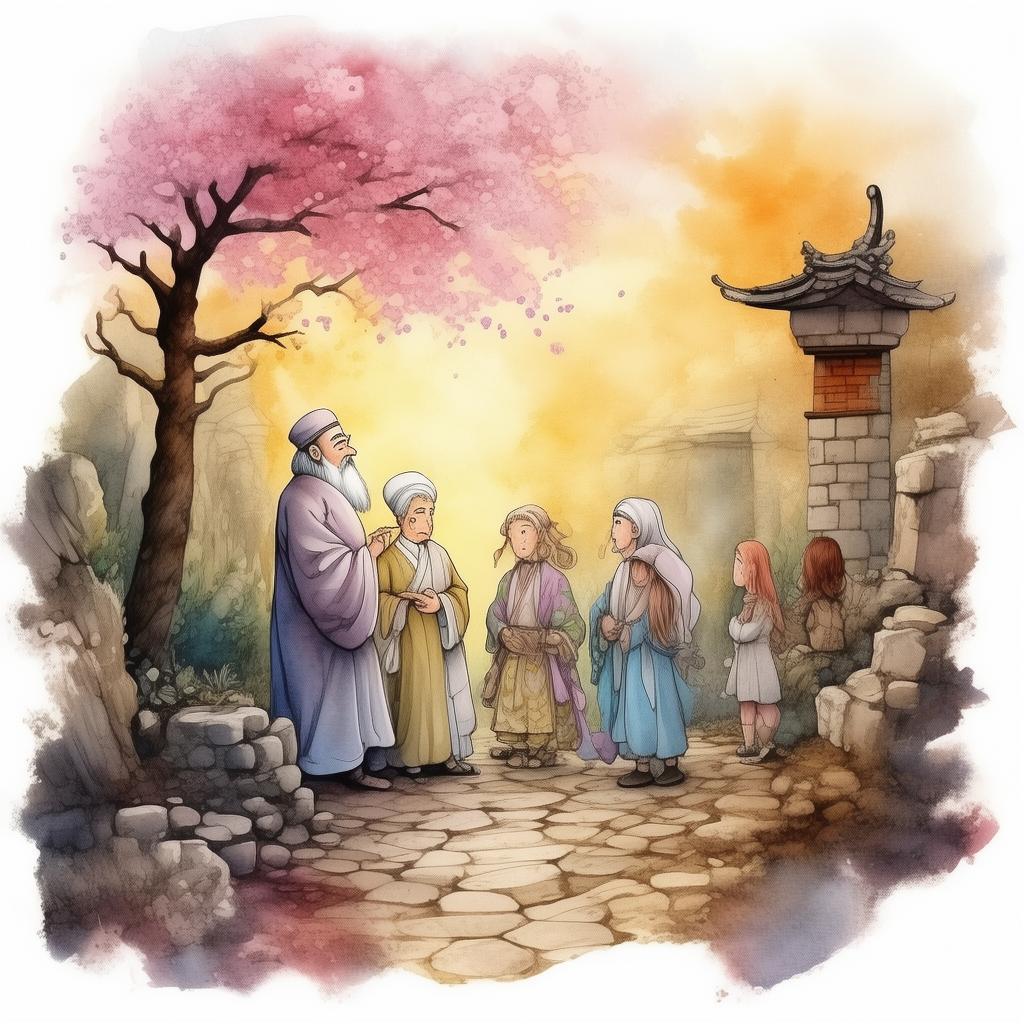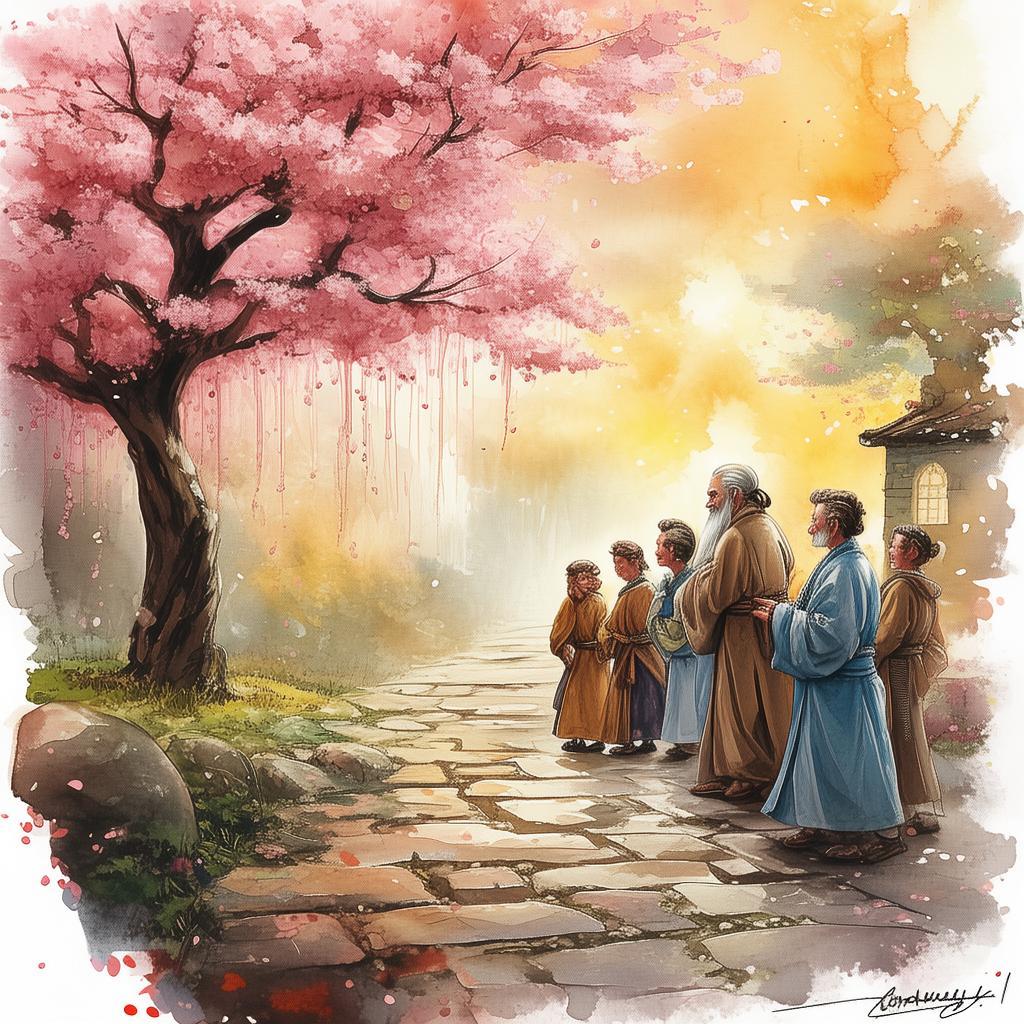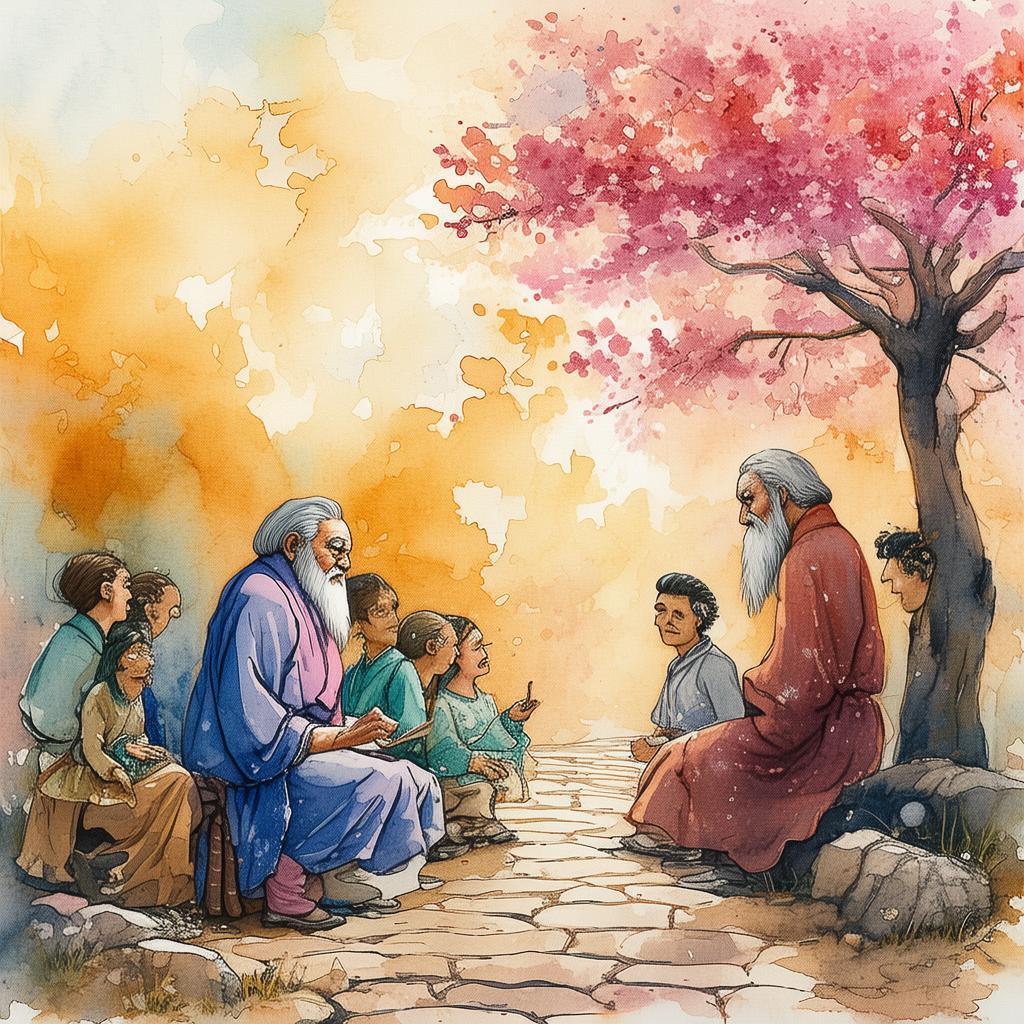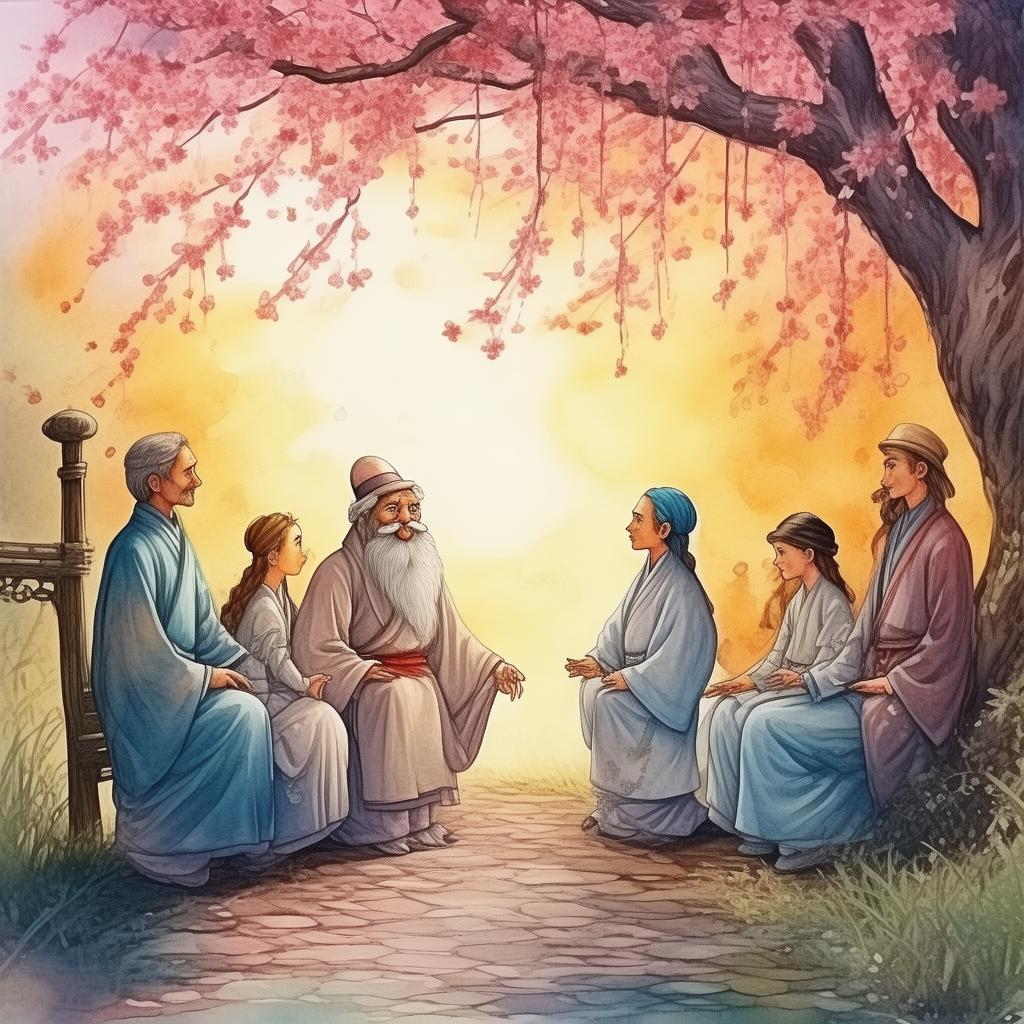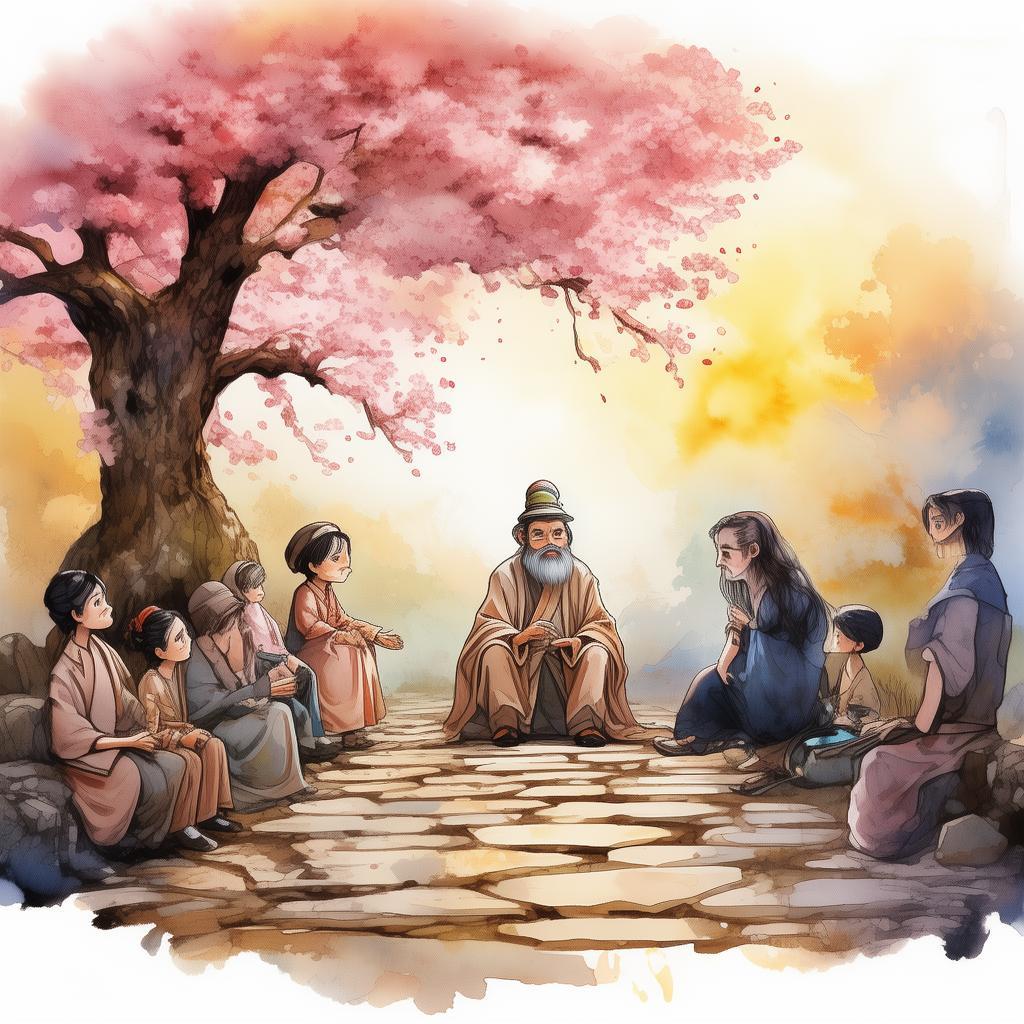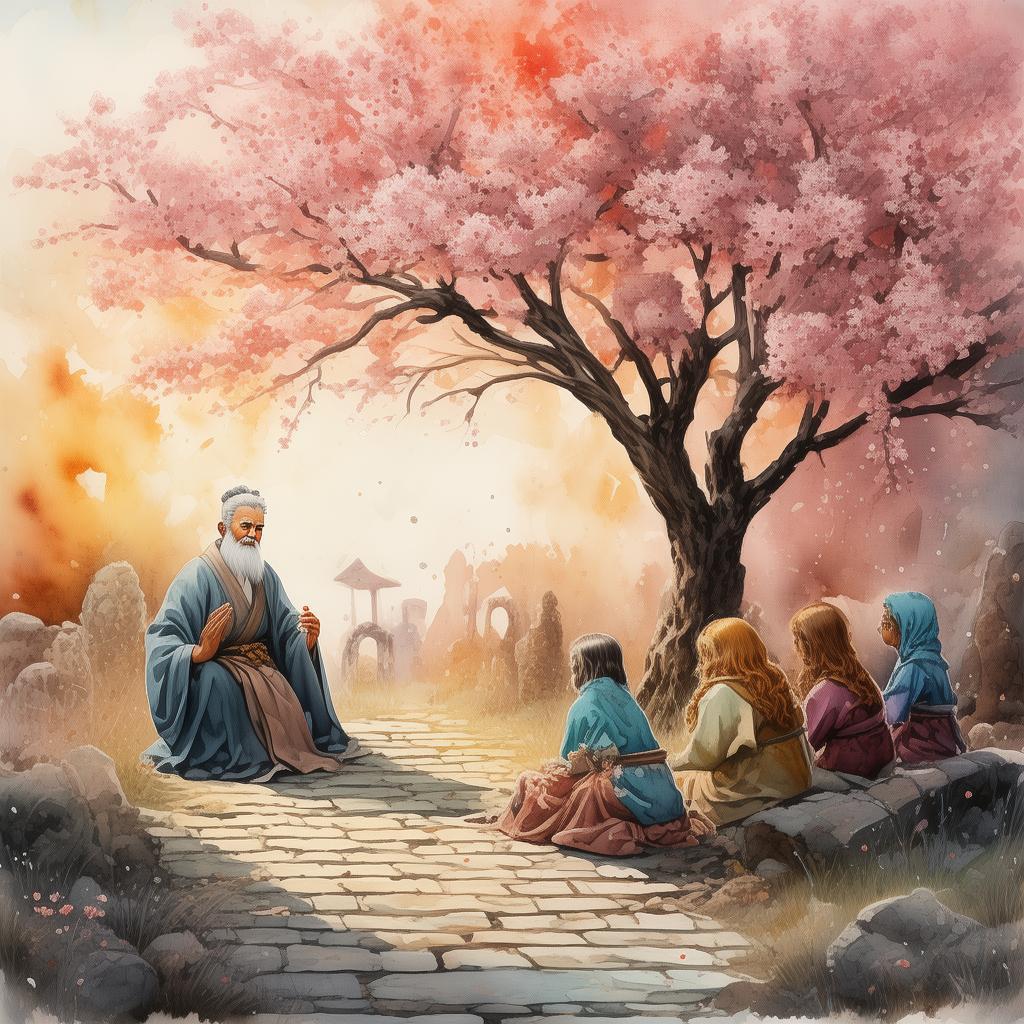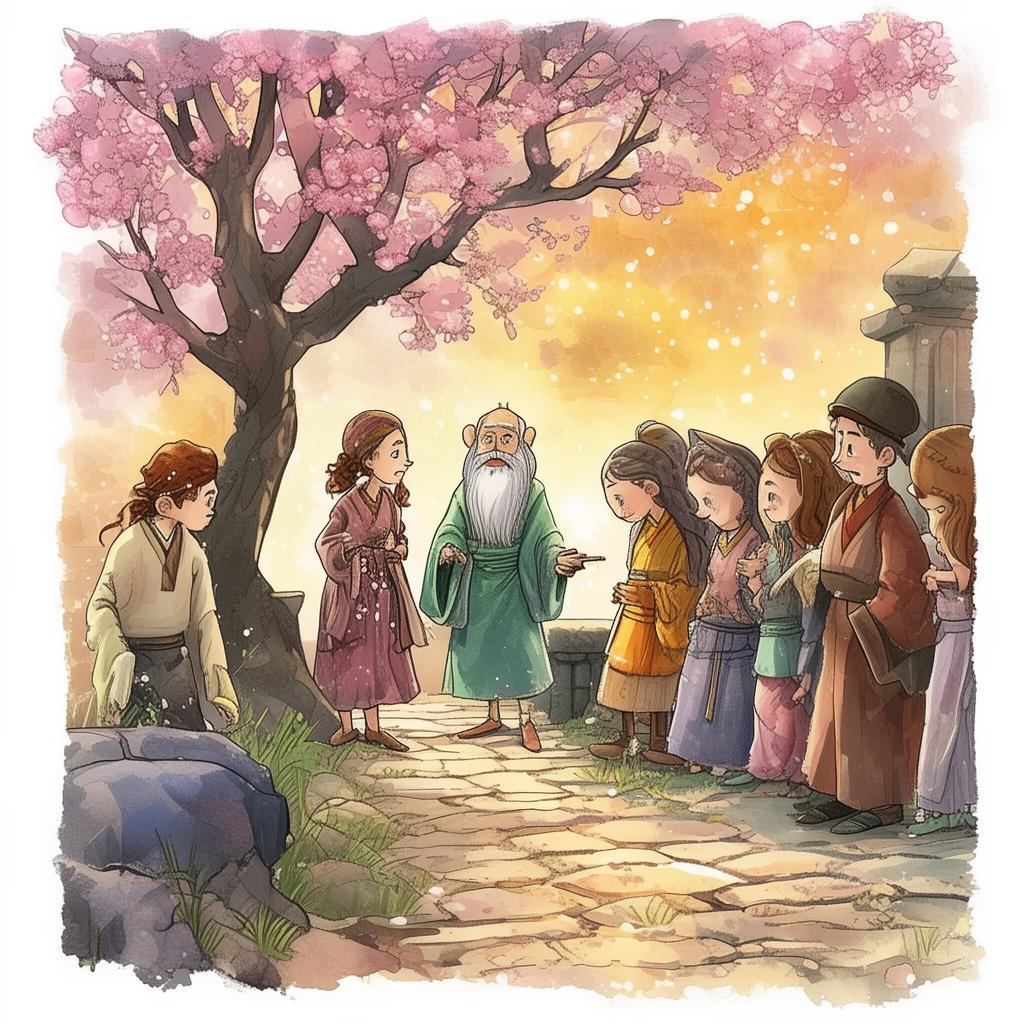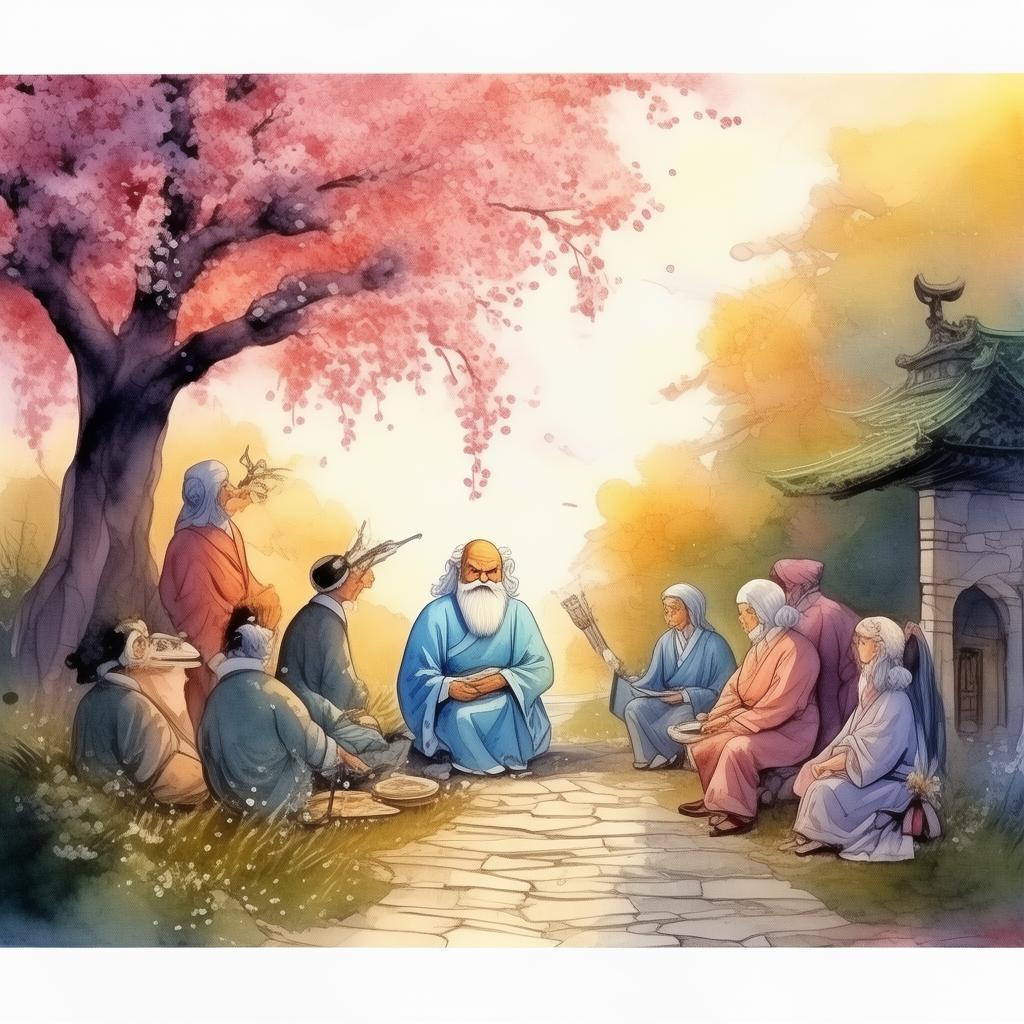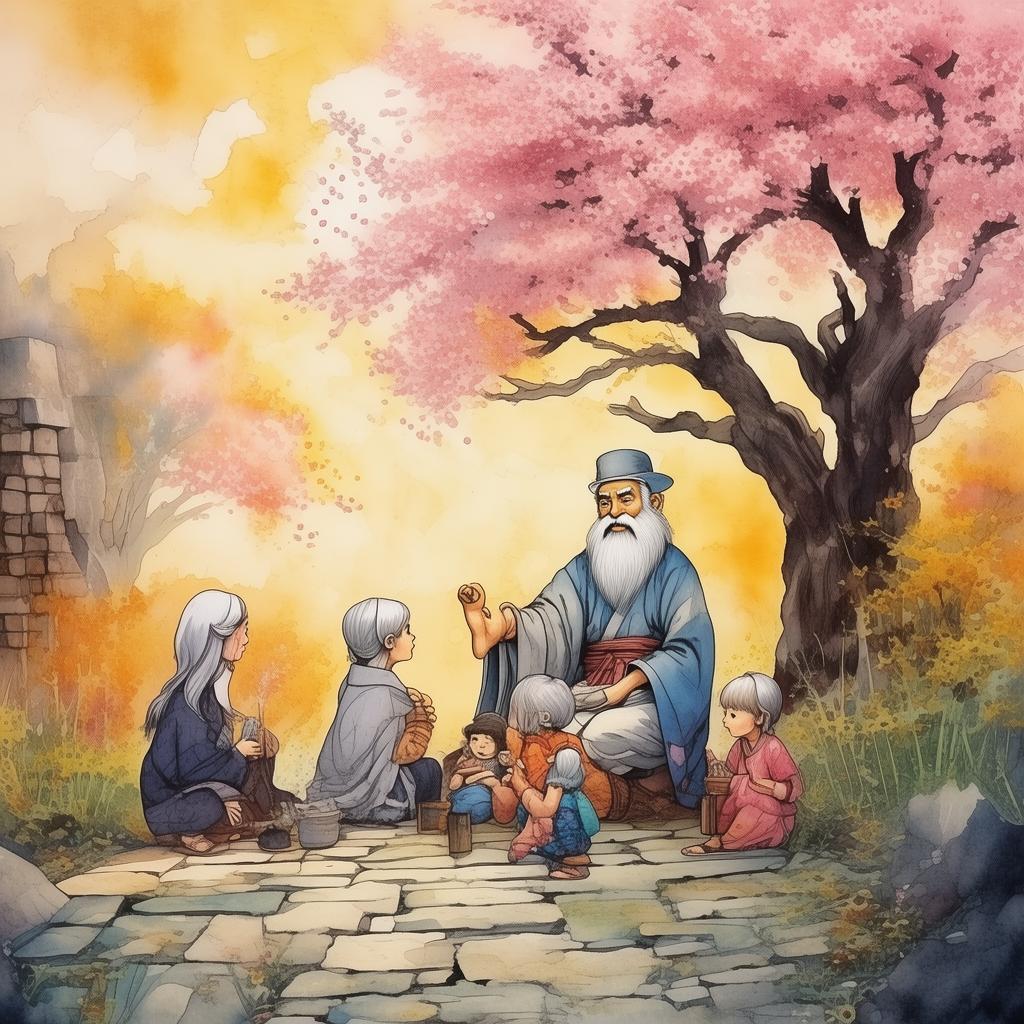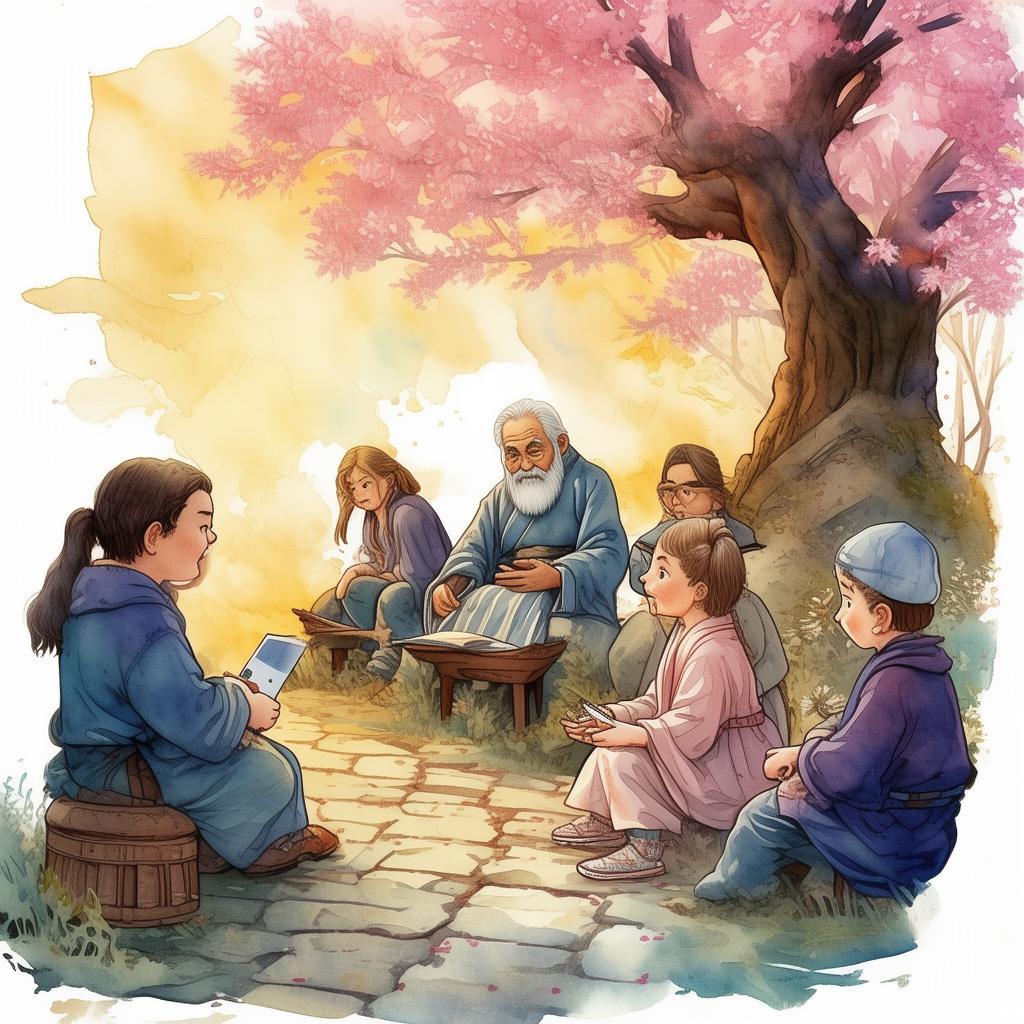The Mind's Paradox: The Quest for Enlightenment
In the ancient land of Zhen Yuan, nestled between the towering mountains and the whispering rivers, there lived a young philosopher named Ming. Ming was not like other scholars of his time; he sought not merely knowledge but the very essence of existence. His curiosity led him to the enigmatic texts of "The Philosopher's Philosophies Twenty Theories of the Mind," a collection of theories that sought to explain the nature of consciousness.
Ming's journey began in the serene halls of the Great Library of Zhen Yuan, where the ancient scrolls of wisdom were kept. He spent days and nights poring over the texts, each theory a puzzle waiting to be solved. The first theory, the Cartesian Mind-Body Dualism, presented a stark division between the physical and the mental. Ming found himself torn between the idea that the mind was a separate entity from the body and the belief that they were inextricably linked.
As he delved deeper, he encountered the theory of Empiricism, which suggested that all knowledge comes from sensory experience. Ming began to question his own experiences, wondering if his perception of reality was merely a construct of his senses. He embarked on a series of experiments, testing the limits of his perception, but found that even his senses could be deceptive.
The next theory, Idealism, posited that the mind was the ultimate reality, and the physical world was an illusion. Ming found himself in a state of confusion, questioning whether his own mind was an illusion or not. He sought guidance from the wise elder, Master Wei, who advised him to seek balance between the physical and the mental.
Ming's quest led him to the mystical mountains of the East, where he encountered the theory of Materialism, which held that the mind was a product of the brain. He was introduced to the practice of meditation, which helped him to explore the depths of his consciousness. Through meditation, he began to understand that the mind was indeed connected to the body, but not in the way he had initially thought.
The journey continued, and Ming encountered the theory of Functionalism, which argued that the mind could be understood as a set of functions. This challenged him to question his own purpose and the purpose of his quest. He realized that his journey was not about finding a single answer but about understanding the complexity of his own mind.
As he ventured further, Ming encountered the theory of Structuralism, which proposed that the mind was structured by innate mental structures. This led him to explore the nature of his own thoughts and emotions, seeking to understand the underlying patterns that shaped his perception.
The final theory, Phenomenology, introduced him to the idea that the mind is a stream of consciousness. Ming found himself lost in a sea of thoughts, each one a ripple in the vast ocean of his mind. He realized that his quest was not about finding answers but about understanding the questions themselves.
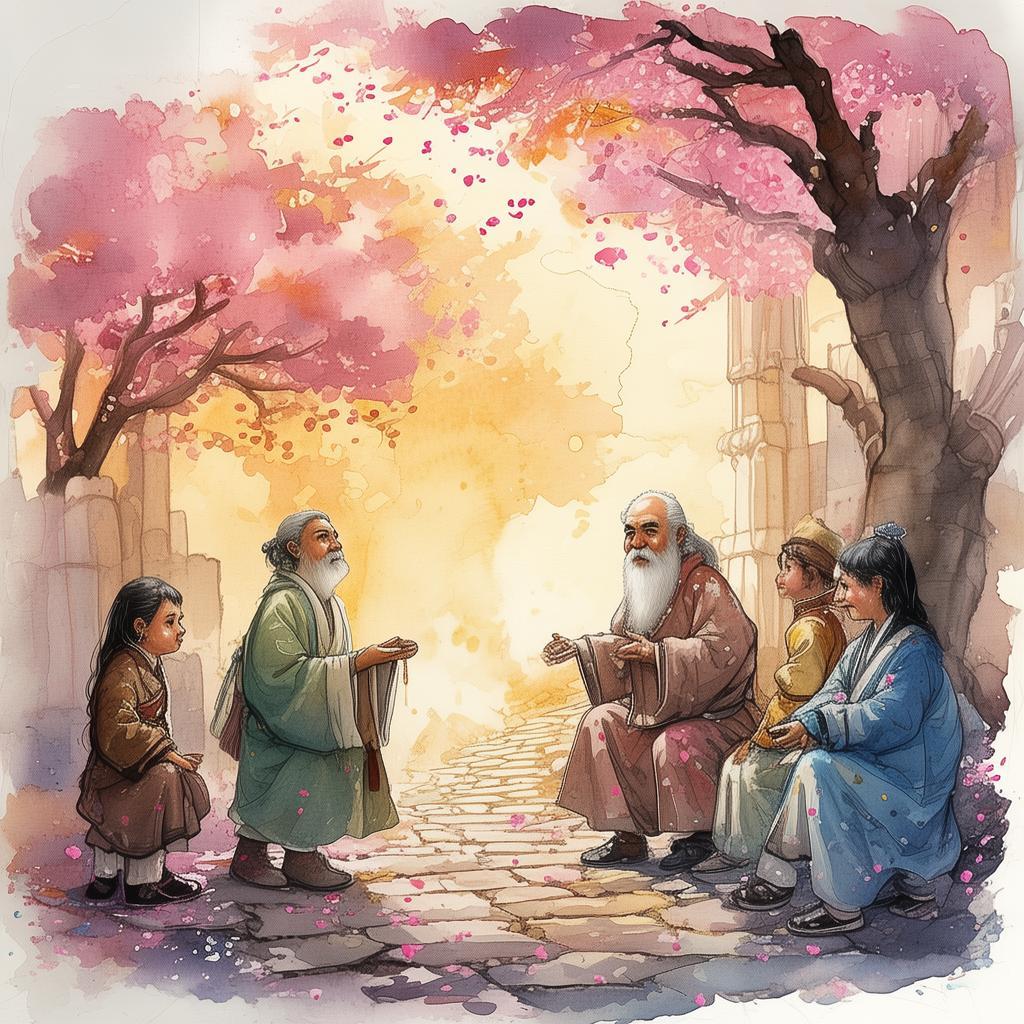
One day, as Ming stood at the edge of a cliff overlooking the vast expanse of the Zhen Yuan plain, he felt a profound sense of enlightenment. He understood that the mind was a paradox, a complex interplay of thoughts, emotions, and perceptions. He realized that the true quest was not to find the answer but to embrace the mystery of existence.
Ming returned to the Great Library of Zhen Yuan, where he shared his newfound wisdom with the scholars. He taught them that the mind is a paradox, a place where the physical and the mental meet, and where the questions are as important as the answers.
The story of Ming's quest became legendary, a tale of a young philosopher who sought to unravel the mysteries of the mind and found enlightenment in the process. His teachings spread far and wide, inspiring countless minds to embark on their own journey of self-discovery.
In the end, Ming realized that the true essence of enlightenment was not in finding the answers but in the pursuit of understanding. He lived out his days in the Great Library, surrounded by the wisdom of the ages, a testament to the power of the human mind and the endless quest for enlightenment.
✨ Original Statement ✨
All articles published on this website (including but not limited to text, images, videos, and other content) are original or authorized for reposting and are protected by relevant laws. Without the explicit written permission of this website, no individual or organization may copy, modify, repost, or use the content for commercial purposes.
If you need to quote or cooperate, please contact this site for authorization. We reserve the right to pursue legal responsibility for any unauthorized use.
Hereby declared.
